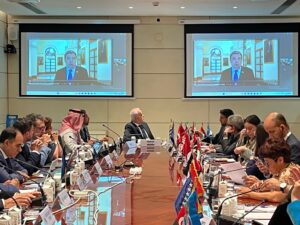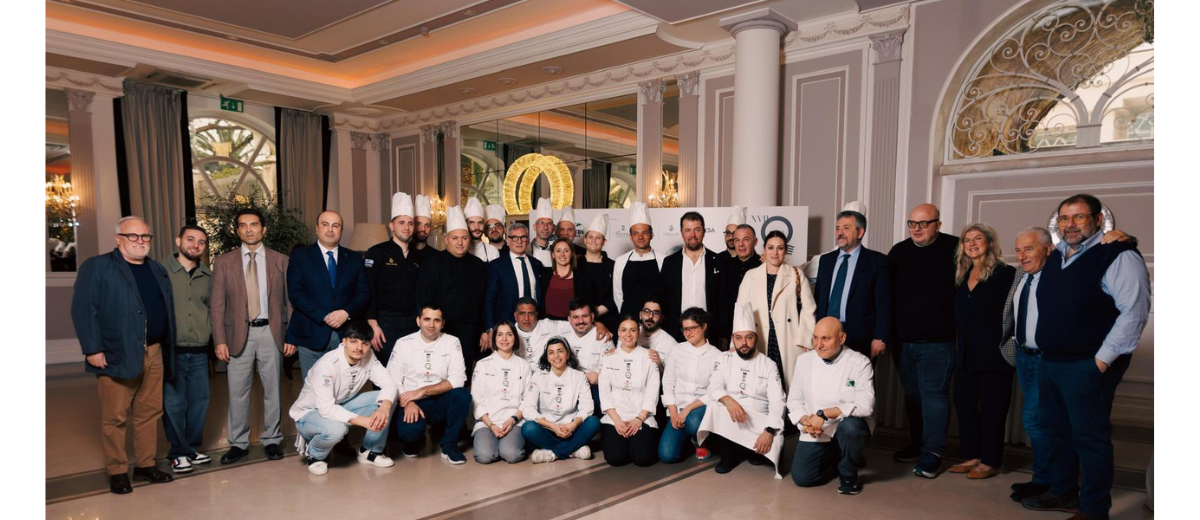Advancing cooperation and standards in the olive sector
The 121st session of the Council of Members of the International Olive Council (IOC) took place at the Organisation’s headquarters in Madrid on Tuesday, 8 July 2025. Delegations from the IOC’s 21 Member States, gathered to review progress, adopt new decisions and set strategic priorities for the olive oil and table olive sectors. Observers from Iraq, Syria and Peru also attended the session.
Ahead of the plenary meeting, the IOC’s specialised committees on—Chemistry and Standardisation, Technology and Environment, Economic and Promotion Affairs, and Administrative and Financial Affairs—convened to review technical progress and submit proposals for adoption. At its 121st plenary session, the Council adopted a series of decisions covering institutional, financial and technical dimensions.
Highlights included the revision of trade and quality standards, revisions to key guidelines applicable to physico-chemical and sensory laboratories, updated rules for IOC-patronaged competitions, and new frameworks for collaboration with leading universities and research centres across member countries, inter alia.
Moreover, the Council of Members also adopted the new IOC’s visual and verbal identity presented by the Executive Secretariat. These communication updates will be gradually implemented across the IOC’s website and other informative outlets.
The next November session, World Olive Day and a ministerial declaration recognising the olive tree’s unparalleled value
 In a closing video message, Spain’s Minister of Agriculture, Fisheries and Food, Luis Planas, reaffirmed Spain’s strong commitment to the IOC and its mission. He expressed his pleasure that the 122nd session of the Council of Members will take place in Córdoba on 19 November 2025, followed by celebrations for World Olive Day on 20 November. Minister Planas extended a formal invitation to his counterparts in IOC Member States to join him in Córdoba and to adopt a ministerial declaration recognising the essential role of the olive tree and its products in environmental sustainability, rural economies, food security, biodiversity, and the preservation of cultural landscapes.
In a closing video message, Spain’s Minister of Agriculture, Fisheries and Food, Luis Planas, reaffirmed Spain’s strong commitment to the IOC and its mission. He expressed his pleasure that the 122nd session of the Council of Members will take place in Córdoba on 19 November 2025, followed by celebrations for World Olive Day on 20 November. Minister Planas extended a formal invitation to his counterparts in IOC Member States to join him in Córdoba and to adopt a ministerial declaration recognising the essential role of the olive tree and its products in environmental sustainability, rural economies, food security, biodiversity, and the preservation of cultural landscapes.
Before closing the session, the Executive Director of the IOC warmly acknowledged the Head of the Financial Unit, Félix Madrid, who is preparing to leave the Organisation after 19 years of exemplary service. He sincerely thanked him for his professionalism, unwavering commitment and valuable contribution to the smooth functioning of the IOC.
Since its establishment in 1959, the IOC has worked to promote the responsible and sustainable development of the global olive sector. It remains firmly committed to its Member States and to all stakeholders across the value chain, with the shared goal of advancing trade, ensuring quality, supporting innovation, and fostering environmental and economic sustainability throughout the sector.









